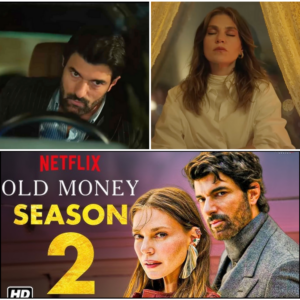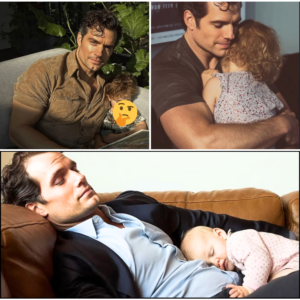In the enchanted corridors of literary history, where wands wave and words wield more power than any Patronus Charm, few feuds have cast longer shadows than the one between Emma Watson and J.K. Rowling. For over a decade, Watson embodied Hermione Granger—the bushy-haired, bookish beacon of the Harry Potter saga—bringing the character’s fierce intellect and unyielding moral compass to life across eight blockbuster films that grossed nearly $8 billion worldwide. Rowling, the series’ architect, was once the fairy godmother to a generation, her rags-to-riches tale mirroring Harry’s own improbable heroism. But since 2020, their bond has frayed under the weight of clashing worldviews, particularly Rowling’s vocal stance on transgender rights, which Watson and many fans decried as exclusionary and harmful. Watson’s public rebukes—tweets of solidarity with trans activists, Instagram posts amplifying marginalized voices—drew lines in the sand, positioning her as a progressive foil to Rowling’s conservatism. Fast-forward to September 2025, and the wizarding world’s most poignant rift may be mending, not with spells, but with something far rarer: grace. In a candid podcast appearance that has sent ripples through social media and sparked soul-searching op-eds, Watson declared she still “loves” Rowling, refuses to “cancel” her, and believes “no one is disposable.” It’s a shocking pivot—or is it a heartfelt homecoming?—that has left fans speechless, divided, and desperately hoping for reconciliation in a franchise forever scarred by its creator’s controversies.
The fracture didn’t happen overnight; it brewed like a Polyjuice Potion gone awry, bubbling over in the cauldron of social media and cultural reckonings. Rowling’s tweets began in earnest during the height of the COVID-19 lockdowns, evolving from subtle jabs at “people who menstruate” to full-throated manifestos defending single-sex spaces and critiquing what she termed “gender identity ideology.” By June 2020, her essay on her website—”TERF Wars”—laid bare her fears of women’s rights erosion, drawing widespread condemnation from LGBTQ+ advocates. Watson, then 30 and fresh off her UN Women ambassadorship, couldn’t stay silent. On June 10, 2020, she tweeted: “Trans people are who they say they are. They should be able to live their lives without being constantly questioned or told they aren’t who they say they are.” It was a direct shot across the bow, amplified by co-stars like Daniel Radcliffe (“Transgender women are women”) and Eddie Redmayne, who penned open letters in solidarity. The Harry Potter alumni united, their voices a chorus of dissent that Rowling dismissed as “well-meaning but misguided,” likening their support to “a new religion” that demanded fealty over facts.
For Watson, the rift cut deeper than public spats. Hermione wasn’t just a role; she was a mirror to Watson’s own ethos—feminism forged in the fires of adolescence, advocacy born from the privilege of a platform built on Rowling’s words. Post-Potter, Watson channeled that energy into HeForShe, her 2014 UN speech that ignited global conversations on gender equality, and later into sustainable fashion initiatives and quiet philanthropy. Rowling’s views clashed violently with this trajectory, turning a mentor-mentee dynamic (Rowling once called Watson “the heart and soul of Hermione”) into a chasm. By 2021, Watson had distanced herself, skipping Potter reunions and focusing on films like The Perks of Being a Wallflower and Little Women, where her portrayals of resilient young women echoed the independence she sought beyond Hogwarts. The 2022 HBO Max Reunion special aired without Rowling’s blessing, a pointed omission that fueled headlines: “Harry Potter Stars Slam Creator’s Transphobia.” Watson, in a Vogue interview that year, elaborated: “I feel like I’ve had to grow up in a different way because of it. It’s painful to see someone you admired say things that hurt people you care about.” The slamming was unequivocal—Watson didn’t mince words, positioning Rowling’s rhetoric as a betrayal of the inclusive magic she’d woven into her books.
Enter September 2025, and the plot thickens like Amortentia in a cauldron of complexity. Watson, now 35 and balancing motherhood with a selective slate of indie projects (rumors swirl of a lead in Greta Gerwig’s next after Barbie), sat down for a sprawling episode of The Michelle Obama Podcast. The conversation, released on September 24, veered from work-life balance to the scars of public scrutiny, landing squarely on the Rowling saga. Obama, ever the empathetic interviewer, probed gently: “You’ve been vocal about standing up for what’s right, even when it costs you. How do you hold space for people who shaped you but hurt others?” Watson paused—a beat that listeners swore echoed through their headphones—before responding with a vulnerability that stripped away the activist armor. “I can love her,” she said, her voice steady but laced with emotion. “I can know she loved me once, when I was that wide-eyed girl on set. I can be grateful for the world she built, the doors it opened. And I can know that the things she’s said are true to her, even if they’re painful and wrong for so many. Cancel culture? I don’t buy into it. No one is disposable. We have to make space for growth, for messiness. That’s the real magic—forgiving without forgetting.”
The words landed like a Stunning Spell on a stunned wizarding fandom. Within hours, #EmmaLovesJK trended worldwide, amassing over 1.5 million posts on X, a platform Rowling herself wields like a wand. Clips from the podcast went viral: Watson’s eyes glistening as she recounted a pre-controversy memory—Rowling gifting her a signed first-edition Philosopher’s Stone with a note: “To my brilliant witch, keep casting spells of change.” Fans dissected it like a Divination class prophecy: Was this a full-throated reversal, a softening of her trans allyship? Or a nuanced plea for humanity in a polarized age? Progressive corners of Tumblr and TikTok erupted in backlash—”Emma’s folding to the TERF pressure!” one 500K-view video thundered, splicing Watson’s words with Rowling’s tweets. Trans advocates like Laverne Cox tweeted measured support: “Gratitude doesn’t mean agreement. Emma’s heart is in the fight; let’s honor that.” Meanwhile, Rowling superfans in Potter Reddit hives hailed it as “redemption arc loading,” with fanfics sprouting like Devil’s Snare, imagining a Hogwarts reconciliation where Hermione debates Dumbledore on forgiveness.
Rowling’s response, predictably, was a thunderbolt from her X perch. On September 26, she fired back: “Emma Watson and her co-stars have every right to embrace gender identity ideology. Such beliefs are legally protected, and I wouldn’t want to live in a world where they weren’t. But let’s not pretend disagreement is hate. I’ve wished them well, even as they’ve wished me silenced. Ignorance isn’t bliss—it’s a choice.” The barb—”ignorance”—stung like a Sectumsempra scar, reigniting the old wounds. Rowling doubled down in a follow-up thread, praising Watson’s talent (“She was Hermione—brilliant, brave”) while lamenting “the cult of cancellation that devours its own.” It was classic Rowling: defiant, articulate, unapologetic, her 14 million followers lapping it up like Butterbeer. The exchange transformed a quiet podcast moment into a cultural cage match, with media outlets from The Guardian to Fox News piling on. Variety framed it as “Watson’s Wake-Up Call: Why Cancel Culture Fails the Famous,” while The Atlantic pondered, “Can You Love the Art and Forgive the Artist in the Age of Rowling?”
Watson’s stance shift—if it can be called that—feels less like capitulation and more like maturation, a Hermione-esque evolution from fiery indignation to thoughtful nuance. In the podcast, she elaborated on her journey: the therapy sessions unpacking survivor’s guilt (“I owe my career to her, but I won’t owe her my silence”), the fan letters from trans youth that fortified her resolve, and the quiet realization that “hate hardens you. Love, even complicated love, keeps you human.” It’s a philosophy echoing her HeForShe ethos—intersectional feminism that includes space for redemption, not just reckoning. Friends close to Watson whisper of late-night calls with Radcliffe, both grappling with the Potter albatross: How do you honor a franchise that shaped your identity while disavowing its creator’s harm? Radcliffe, in a parallel Esquire profile, echoed her: “Jo’s not the villain in our story. She’s the flawed giant who built the castle. We live in it, but we don’t have to worship the bricks.”
The ripple effects on Harry Potter‘s enduring empire are seismic. The franchise, a $30 billion behemoth encompassing films, theme parks, and a forthcoming HBO series reboot helmed by Francesca Gardiner, has weathered Rowling’s storms with calculated detachment. Warner Bros. Discovery, post-2023 merger, has leaned into “creator-optional” branding, greenlighting Hogwarts Legacy amid boycotts and scripting the TV adaptation without Rowling’s day-to-day input. Yet, her shadow looms: royalties fund her advocacy, and her endorsements can sway box office tides. Watson’s words could thaw that frost—insiders buzz of a potential Potter podcast cameo, or even a Rowling-Watson sit-down for charity. But trans rights groups like GLAAD warn against “false equivalency,” urging Watson to channel her platform into action: “Love is a start; legislation is the spell we need.” Watson, ever the activist, has since amplified GLAAD’s calls for U.K. gender recognition reforms, tweeting on September 30: “Loving someone doesn’t mean agreeing. It means fighting smarter—together.”
For fans, the saga is a bittersweet potion, stirring nostalgia with a dash of disillusion. Potter millennials, now in their 30s and 40s, grew up idolizing Hermione’s “When in doubt, I find a library” wisdom, only to watch it clash with real-world reckonings. Online forums overflow with essays: “Emma’s not changing; she’s growing,” one viral Medium piece argues, citing her consistent donations to trans youth shelters. Others mourn the innocence lost—”Harry Potter was our safe space; now it’s a battlefield.” Conventions like LeakyCon 2025, slated for Orlando in November, have added panels: “Forgiving Flawed Creators: Lessons from Rowling and Watson.” Cosplayers don House scarves in protest parades, blending elf ears with rainbow pins—a visual manifesto of divided loyalties.
As October’s chill settles over the wizarding world—real and imagined—Watson’s gesture stands as a beacon in the fog. In an era of echo chambers and easy outrage, her refusal to “slam and sever” models a radical empathy: the ability to hold gratitude and grief in the same hand. Rowling, for her part, has softened slightly, retweeting a fan’s tribute to Watson’s Little Women with a simple “Talented beyond words.” Whether this sparks a true truce or merely a momentary Patronus glow remains unseen. But one thing’s certain: like the Boy Who Lived, the magic endures—not in perfection, but in the messy, miraculous act of choosing connection over curse. Emma Watson didn’t just change her stance; she reminded us that even in the darkest divides, there’s room for a little light. Accio reconciliation—may it fly true.


